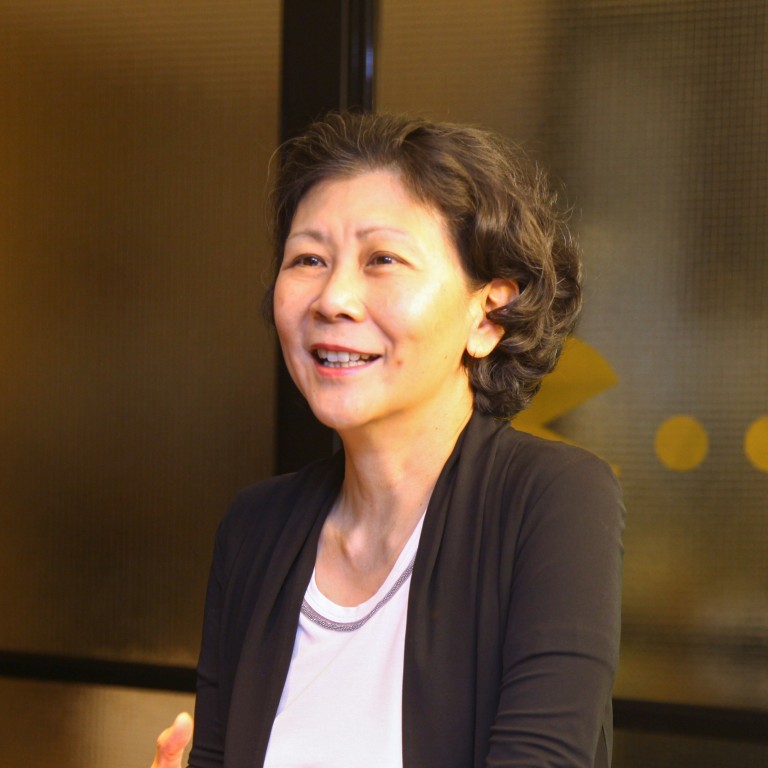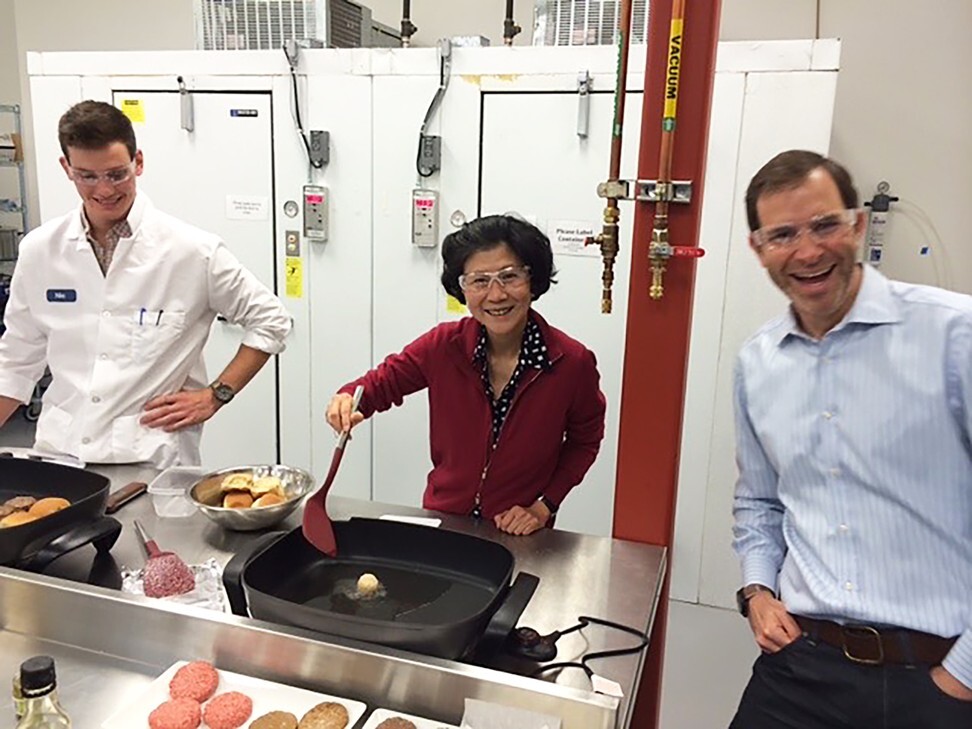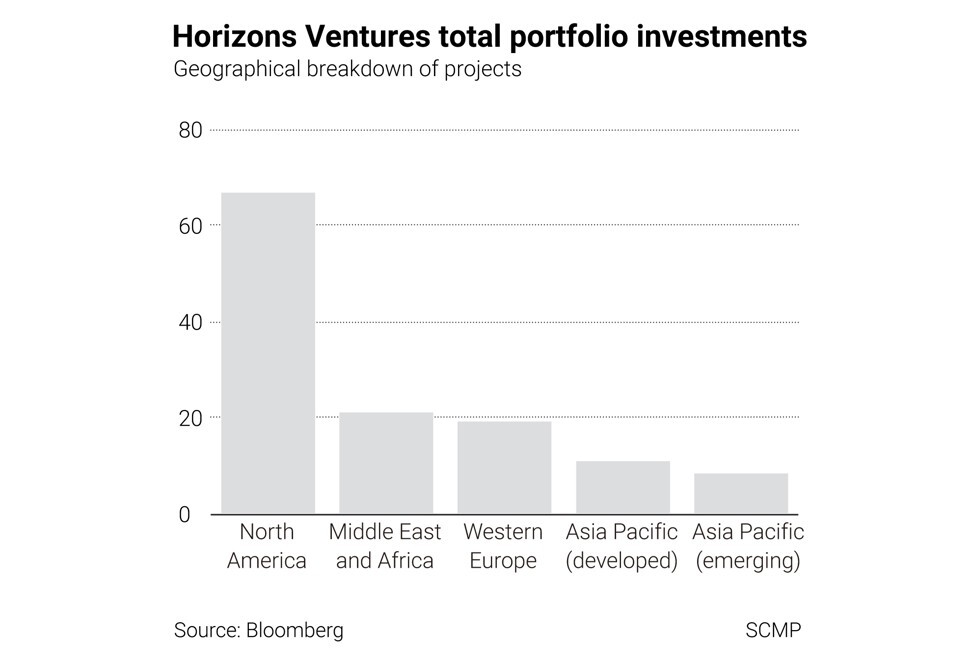
Exclusive | Li Ka-shing’s bet on the future is synthetic biology, with Horizons’ investments in faux meat, plant milk and molecular whiskey
- With an uncanny nose for sniffing out stars, co-founder Solina Chau had been among the earliest investors in Facebook, Spotify and Apple’s digital assistant Siri
- The biggest coup in nearly two decades of investments was Horizons’ funding of Zoom Video Communications, valued at US$11 billion in September
Impossible Foods’ vice-president Nick Halla had the tables turned on him in early 2014 during a pitch of his three-year-old start-up to one of the world’s most powerful venture capital investors.
Solina Chau Hoi-shuen, the co-founder of Horizons Ventures, was visiting Impossible Foods’ office in Redwood City in California. As soon as she arrived, Chau took control of the demonstration, and proceeded to stir fry a plate of meat balls made from genetically modified yeast.

“Li is a true believer in building science for good,” Chau said in an emailed response to South China Morning Post. “We are always thinking about the next normal, and eager to be a part of the founder’s journey to make it happen.”
Chau, born in 1961 in Hong Kong, rarely grants interviews. She met Li some time during the early 1990s while working on a property project in Beijing, according to people familiar with their relationship. She is variously described as “companion” or “confidante” to the tycoon, who became a widower in 1990 with the death of his wife Chong Yuet-ming.

Li amassed his wealth from real estate via CK Asset Holdings, and a broad range of businesses under CK Hutchison Holdings, from retail sales to container ports. Victor Li Tzar-kuoi, the elder of the tycoon’s two sons, now runs the two flagship companies, while the younger son Richard Li Tzar-kai runs the Pacific Century Group.
Li set up Horizons in 2002 to generate financial returns for his considerable philanthropic endeavour, often describing the Li Ka-Shing Foundation as his “third son.” The tycoon put US$11 billion, a third of his estimated fortunes, in 2006 into his foundation, appointing Chau as its executive director. The foundation shoulders the risks from Horizons’ investments, but the returns go toward financing its charitable work.
Instead of repeating the property and infrastructure investments that laid the foundation of his wealth, Li used his venture capital fund, and Chau’s acumen, to bet on the world’s brightest minds.
“Being ‘Superman’ takes its toll,” Chau said. “But if we support others to become superheroes, it is a more effective way to change our [potential and capabilities] exponentially.”

About half of Horizons’ investments are in technology, a third in consumer non-recyclables including Impossible Foods and Perfect Day, with the remainder in financial services including the cross-border payment service Airwallex, communications and cyclical consumer products like the music tech company ROLI.

Horizon’s interest in the field can be traced back to 2010 when Chau met one of the world’s brightest minds in the industry.
“Initial encounter with this transformative technology was about 10 years ago when I first met UC Berkeley’s professor Jay Keasling,” Chau said. “Admittedly at that time I did not fully grasp the significance of how this breakthrough technology could harness what nature does best and its limitless applications.”
Keasling, founder of the cannabis processing start-up Demetrix, commercialised its technology with an US$11 million seed round led by Horizons in 2017 to use yeast – similar to fermenting beer – for making a range of cannabinoids found in the marijuana plant. These lab-grown cannabinoids can be used to develop new pharmaceuticals, additives and supplements for use in clinical and consumer applications at cheaper prices than extracting them from plants.
Perfect Day, co-invested by Horizons, Temasek and the Canada Pension Plan Investment Board (CPPIB), uses a fermentation process to make proteins that are nutritionally identical to cow milk. Horizons also invested in Glyph, which uses chemical processes to create a “molecular whiskey” without requiring the liquor to sit in oak vats. And in 2016, Horizons led a US$40 million funding round in Modern Meadow, developer of lab-grown leather.

This year, Horizons invested in Ansa Biotechnologies, which creates a new process for making DNA faster and more accurate than existing technologies. The recent investment is Australian plant-based meat start-up v2food, that creates a meat alternative using protein extracted from legumes to make mince that looks, tastes and cooks like meat.
“Horizons’ investments in artificial intelligence and biotech sectors are ahead of other big firms in Hong Kong,” said Clemson University’s associate professor of economics Kevin Tsui Ka-kin, adding that synthetic biology will lead the future as climate change and sustainability become the major challenges confronting humanity.
Horizons usually gets more than 200 proposals every month from universities and start-ups. It picks its investment targets based on various criteria such as the quality of the entrepreneurs and the potential to scale.
“Horizons’ role is to distinguish the ‘investible’ from the ‘interesting,’ Chau said. “Many opportunities we receive are unquestionably [subject to] only the founder’s great imagination.”


